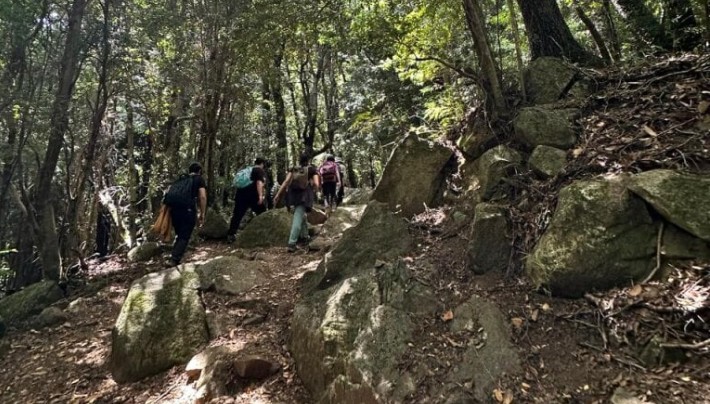Contact with nature is not only a pleasant experience but also an effective therapy for physical and mental health, according to the latest studies by the World Health Organization (WHO).
Numerous scientific reports emphasize the profound benefits of being in green and blue spaces, such as forests, mountains, parks, rivers, and coastlines, for both our mental and physical health.
In particular, the WHO report titled "Green and Blue Spaces and Mental Health" highlights how exposure to these natural environments has positive effects on mood and psychological well-being.
According to the research, spending time in places like parks, gardens, forests, and coastlines not only helps reduce stress but also promotes physical activity, encourages social interaction, and provides ideal spaces for relaxation, allowing people to disconnect from daily stressors.
A clear example of this connection between nature and well-being is the Japanese concept of "Shinrin-Yoku," known in Spanish as "Forest Bathing."
This term, which originated in Japan in the 1980s as part of a national campaign to combat stress, has gained traction as it invites people to deeply immerse themselves in a forest—not just to walk but to interact with the environment through their senses.
BOOSTING MENTAL AND PHYSICAL WELL-BEING
This practice has gained international recognition for its ability to reduce stress, improve mood, and enhance overall well-being.
Following these trends, La Tribuna reached out to Dr. Francisco Bustamante, a psychiatrist at Clínica Universidad de los Andes, to discuss the benefits of spending time in nature and how it can improve the quality of life for communities.
Bustamante is one of many experts who highlights the benefits of spending time in natural spaces, stating that "contact with nature reduces stress and enhances the sense of well-being."
"Our generation is so urbanized that we forget we come from a nature deeply connected to the natural environment, right? That’s why it’s good not to lose that contact, not to sever this primal natural bond that is so tied to our own nature, and to engage more with outdoor life," the expert commented.
SPIRITUALITY THAT STRENGTHENS THE MIND
Eastern cultures, such as the Japanese, and indigenous peoples like the Mapuche, the psychiatrist noted, have understood for centuries the importance of this deep connection with nature. For them, natural environments are not just physical places but spiritual spaces that strengthen the mind and body.
Over the years, scientific evidence has shown that living near green spaces improves psychological well-being, reduces the prevalence of mental and respiratory illnesses, and even enhances schoolchildren's academic performance. In more severe cases, such as people with dementia, the benefits of being close to these spaces are also notable.
"There is international scientific evidence that living near green spaces leads to better psychological well-being and a lower prevalence of mental illnesses. It also reduces respiratory diseases and can even improve academic performance in schoolchildren, among other outcomes," he stated.
LIVING IN THE PRESENT
In this context, one of the keys to maintaining psychological well-being lies in taking small breaks or pauses throughout the day. These gaps in our daily routine are essential for disconnecting from stress and reconnecting with nature.
The specialist also referred to the concept of "soft fascination," related to practices like mindfulness, which plays a central role in this process.
"This notion, which promotes mindfulness, invites us to be fully present in the moment and aware of all the stimuli the natural environment offers us. Being in nature not only allows us to enjoy the sounds and scents of fresh air but also helps us focus and relieve stress—something deeply connected to the concept of mindfulness."
This is why many major cities are recognizing this need and have begun integrating more green spaces, such as parks and squares, for the public to enjoy.
LETTING GO OF CONTROL AND RESTING
Santiago, for example, is a city that has made progress in this regard, as has Los Ángeles, which also benefits from a natural environment enriched by forests and rural areas.
"Society is becoming increasingly aware of this, and green spaces are being created that can be more accessible through squares or parks (...). In this sense, the city of Los Ángeles has a very favorable environment with many forests and a rich rural setting from which its inhabitants can draw nourishment. Therefore, we must try to get into the habit of taking small breaks during the week to immerse ourselves more in green spaces and nature."
Ultimately, it is becoming increasingly clear that incorporating these moments of rest and reconnection with nature into our weekly routines is vital. These small pauses not only help reduce stress but also improve mental health, fostering a higher quality of life.
Source:La Tribuna







Comentarios (0)
No hay comentarios aún. ¡Sé el primero en comentar!
Deja un comentario